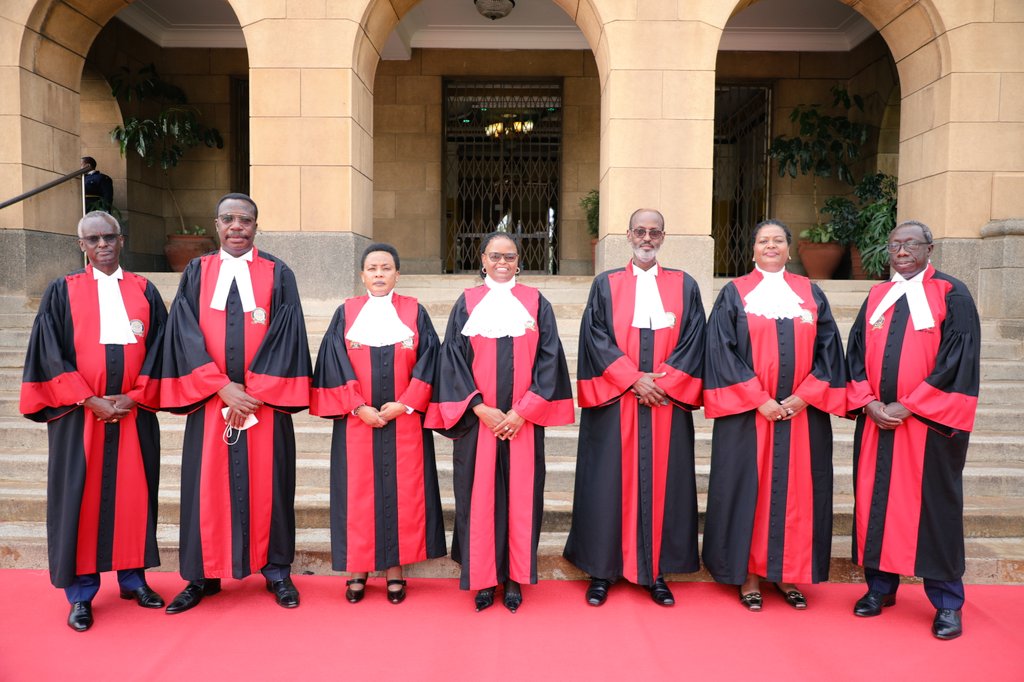
CJ Koome launches AL-Islaah Centre in Garissa
The Chief Justice said the AL-Islaah Centre would be a cultural symbol of peace, dialogue and unity
During the recess, a duty judge will remain available to handle urgent matters.
In Summary

Audio By Vocalize

Chief Justice Martha Koome has announced the Supreme Court will December recess for 2025.
The recess will run from Sunday, December 21, 2025, to Tuesday, January 13, 2026, both days inclusive.
During the recess, a duty judge will remain available to handle urgent matters.
"During this period, the Supreme Court Registry shall remain open to the public from 8.30 am to 5 pm on all weekdays other than public holidays," Koome said.
The recess means that full hearings of the Supreme Court will not take place during that period.
For litigation planning, including appeals and constitutional petitions, parties must account for this downtime and potential delays.
The availability of the duty judge means emergencies (like urgent injunctions) may still be processed, but standard hearing schedules will likely resume after the recess.
For legal practitioners and litigants, awareness of the recess allows proper case management and scheduling.
In the same gazette notice, CJ Koome announced several key judicial and administrative appointments and directives.
She named new members to the Sports Disputes Tribunal and the established a new Environment and Land Court (ELC) station in Limuru.
In a notice issued under the Sports Act (Cap. 223), the Judicial Service Commission (JSC) appointed Allan Mola Owinyi as the Deputy Chairperson of the Sports Disputes Tribunal (SDT).
His appointment takes effect from October 7, 2025, and runs until May 16, 2030.
In a separate notice, the JSC appointed five new members to the Tribunal for a five-year term beginning September 15, 2025.
The new members are Eddie Omondi, Victor Obwaya Omwebu, Aleli Peris Mukoko, Nicodemus Kimanthi Musau, and Luke Wamugunda Irungu.
The appointments were made under the Sports Act, empowering the Tribunal to continue addressing the growing number of sports-related cases in the country.
The SDT is a statutory judicial body created to resolve disputes in the sports sector, ensuring that conflicts within sports organisations are handled fairly, efficiently, and independently, without necessarily burdening the regular courts.
The Tribunal, established under the Sports Act, handles sports-related disputes, including disciplinary, contractual, and governance matters across Kenya’s athletics, football, and other federations.
It also deals with anti-doping cases and other conflicts that arise within Kenyan sports.
The tribunal serves as a quasi-judicial alternative to the High Court, and its decisions can be appealed to the High Court of Kenya, but only on points of law.
It is made up of a chairperson (appointed by the JSC, must be qualified to be a High Court Judge), a deputy chairperson, and not more than seven members with expertise in law, sports administration, or dispute resolution.
The appointments are part of broader efforts to strengthen dispute resolution in the sports sector, ensuring fairness, accountability, and adherence to the rule of law.
In a separate notice, Koome formally established a new Environment and Land Court (ELC) at Limuru, Kiambu County, with effect from January 15, 2026.
The establishment of the Limuru ELC is made under the Civil Procedure Act (Cap. 21) and the Environment and Land Court Act (No. 19 of 2011).
The new court will help ease case backlogs and expand access to justice fr residents of Kiambu and neighboring counties in land, environmental and property-related disputes.
The latest appointments and judicial notices reflect the Judiciary’s ongoing reforms to decentralise access to justice, professionalise sports dispute resolution and enhance institutional efficiency.
CJ Koome, who also chairs the Judicial Service Commission, has at times emphasised strengthening specialised tribunals and expanding judicial infrastructure across the country as part of the Judiciary’s Social Transformation through Access to Justice (STAJ) vision.

The Chief Justice said the AL-Islaah Centre would be a cultural symbol of peace, dialogue and unity